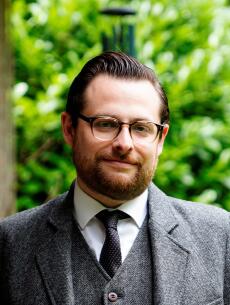
Nicholas K. Johnson, M.A.
Lecturer in Educational Science with special focus on the History of Education (Prof. Overhoff)
History of Education
Center for German-American Educational History
Contact
Georgskommende 26
Raum D205
48143 Münster
Tel: +49 251 83-24147
Fax: +49 251 83-24184
njohnson@uni-muenster.de

